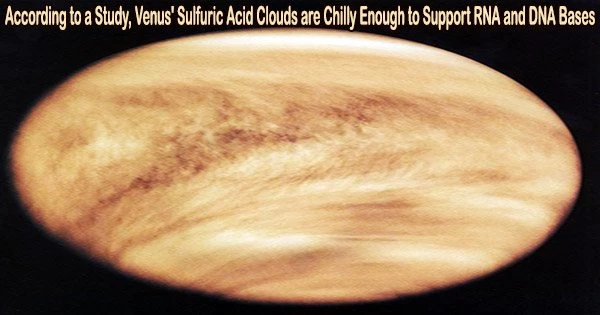Researchers from MIT, Nanoplanet Consulting, Harvard University, and the University of Alberta have discovered through lab testing that conditions in Venus’ clouds may be favorable for harboring life. The group discusses the experiments they carried out in their lab and the outcomes in their report that was published in Proceedings of the National Academy of Sciences.
According to earlier studies, Venus’ surface averages 462°C, which is significantly too hot for life to exist there. However, the planet’s atmosphere is much cooler, particularly in its cloud temperatures there are just 30°C to 70°C, well within a range that could support life.
However, these clouds are much more acidic than any clouds on Earth since they are made of sulfuric acid.
However, the research team was intrigued by the idea that life might be able to survive in such a setting. They conducted tests to see if the bases of RNA and/or DNA could endure in such conditions.
Nucleic acid bases including cytosine, adenine, thymine, guanine, and uracil were subjected to chemical conditions akin to those thought to exist in Venusian clouds as part of the studies. Then they applied the same procedure to 2,6-diaminopurine and the pyrimidine and purine nucleic acid base cores.
They then tested the stability of the acid bases using NMR and UV spectroscopy. They discovered that under such circumstances, the acid bases stayed stable and did so for up to two weeks, proving that they might do the same in Venusian clouds.
The researchers speculate that their results would surprise planetary scientists, but they doubt that many chemists would be taken aback. They point out that the use of concentrated sulfuric acid in oil refining, which produces organic chemicals, some of which are aromatic molecules, is well known.
They opine that in order to find life elsewhere in the universe, astronomers may need to broaden their search to encompass planet atmospheres as well as planet surfaces.





